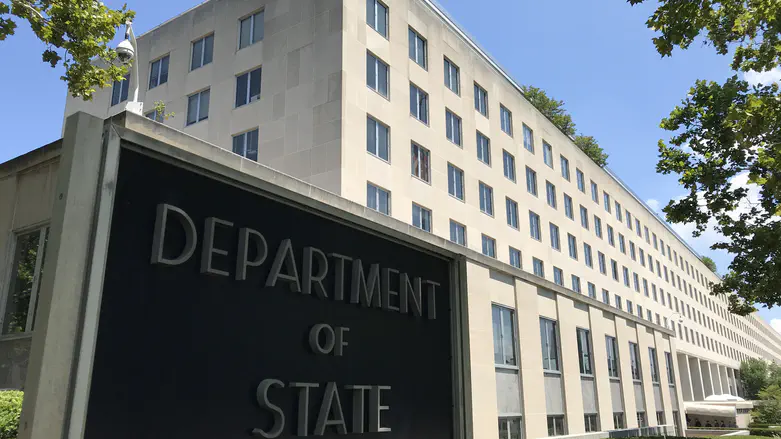
The United States is on heightened alert, bracing for potential regional escalation in the Middle East. Amid escalating concerns regarding a possible Israeli strike on Iran’s nuclear facilities, the US State Department has issued a critical directive to its diplomatic missions worldwide, The Washington Post reported on Wednesday.
Embassies located within striking distance of Iranian assets – a broad category encompassing missions in the Middle East, Eastern Europe, and Northern Africa – have been ordered to convene emergency action committees (EACs). This significant measure mandates these committees to dispatch cables to Washington outlining strategies to mitigate potential risks, according to the report.
This procedure has already resulted in immediate actions on the ground as Secretary of State Marco Rubio authorized the departure of nonessential personnel from Iraq.
A State Department official, speaking anonymously, stated to The Washington Post, “We are constantly assessing the appropriate personnel posture at all our embassies. Based on our latest analysis, we decided to reduce the footprint of our Mission in Iraq.”
Further underscoring the gravity of the situation, Defense Secretary Pete Hegseth has approved the “voluntary departure” of military family members from US installations across the Middle Eas, the report said.
US Central Command is reportedly coordinating closely with State Department counterparts and allies to maintain a constant state of readiness.
A senior diplomat in the region articulated the profound anxiety within diplomatic circles, telling The Washington Post, “We are watching and worried. We think it’s more serious than any other time in the past.”
The recent precautionary steps come as diplomatic efforts with Iran stall over its nuclear ambitions. Despite indirect negotiations between the US and Iran in an attempt to reach a compromise on Iran’s nuclear program, President Donald Trump expressed growing doubt that Iran will agree to halt its nuclear ambitions under a revised US deal.
In an interview on Miranda Devine’s new podcast Pod Force One, Trump said Iran appears to be “delaying,” adding, “they’re not going to have a nuclear weapon,” with or without a deal.
“I don’t know,” Trump told Devine, when asked if a deal can be reached. “I don’t know. I did think so, and I’m getting more and more — less confident about it.”
From his standpoint, a deal is important because “it would be nicer to do it without warfare, without people dying,” but Tehran does not seem to have “the same level of enthusiasm for them to make a deal.”
Iran’s parliament speaker, Mohammad Bagher Ghalibaf, announced on Sunday that the latest United States proposal for a nuclear deal fails to include the lifting of sanctions, accusing Washington of dishonesty and attempting to impose a “unilateral” agreement.
Source link
2025-06-11 22:09:00





